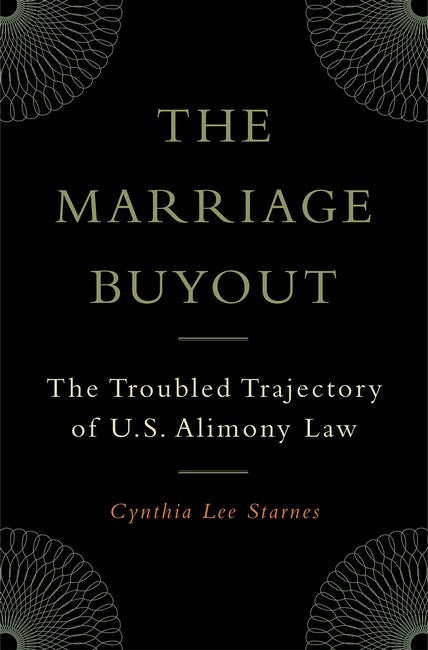From divorce court to popular culture, alimony is a dirty word. Unpopular and rarely ordered, the awards are frequently inconsistent and unpredictable. The institution itself is often viewed as an historical relic that harkens back to a gendered past in which women lacked the economic independence to free themselves from economic support by their spouses. In short, critics of alimony claim it has no place in contemporary visions of marriage as a partnership of equals. But as Cynthia Lee Starnes argues in The Marriage Buyout, alimony is often the only practical tool for ensuring that divorce does not treat today's primary caregivers as if they were suckers. Her solution is to radically reconceptualize alimony as a marriage buyout. Starnes's buyouts draw on a partnership model of marriage that reinforces communal norms of marriage, providing a gender-neutral alternative to alimony that assumes equality in spousal contribution, responsibility, and right. Her quantification formulae support new default rules that make buyouts more certain and predictable than their current alimony counterparts. Looking beyond alimony, Starnes outlines a new vision of marriages with children, describing a co-parenting partnership between committed couples, and the conceptual basis for income sharing between divorced parents of minor children. Ultimately, under a partnership model, the focus of alimony is on gain rather than loss and equality rather than power: a spouse with disparately low earnings isn't a sucker or a victim dependent on a fixed alimony payment, but rather an equal stakeholder in marriage who is entitled at divorce to share any gains the marriage produced.

